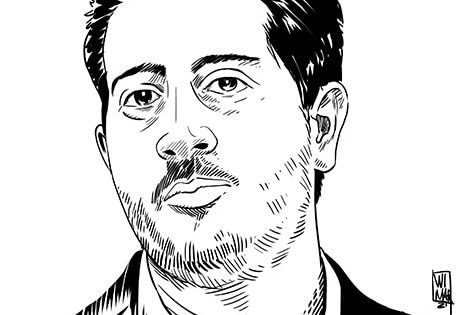(RSF/IFEX) – RSF has voiced surprise at the 22-month prison sentence which Roberto de Jesús Guerra Pérez, a correspondent of the Miami-based Payolibre and Nueva Prensa Cubana websites and the US government-funded Radio Martí, received on 27 February 2007 from a Havana court on a charge of “disturbing the peace,” and said it hoped the […]
(RSF/IFEX) – RSF has voiced surprise at the 22-month prison sentence which Roberto de Jesús Guerra Pérez, a correspondent of the Miami-based Payolibre and Nueva Prensa Cubana websites and the US government-funded Radio Martí, received on 27 February 2007 from a Havana court on a charge of “disturbing the peace,” and said it hoped the 19 months he has already spent in detention will be deducted from the time he has to serve.
“Such a severe sentence for ‘disturbing the peace’ is in itself surprising,” RSF said. “Guerra was held for 19 months without being charged before being tried. We obviously hope this long period already spent behind bars will be discounted from his sentence and that he will be released soon.”
The organisation added: “Prior to his arrest, Guerra was repeatedly harassed because of his journalistic activities, and the peaceful demonstration in which he took part on 13 July 2005 was just used as a pretext for imprisoning him.”
According to the Cuban Commission for Human Rights and National Reconciliation (CCDHRN), Guerra, 28, was one of five dissidents who appeared before a municipal court in Havana on 27 February. They received sentences ranging from 22 months to two years in prison for “disturbing the peace” by staging a peaceful demonstration on 13 July 2005 to commemorate the shipwreck, 11 years earlier, of five Cuban “balseros” – [boat people] who had been trying to reach Florida by sea.
The five were arrested by state security police as soon as they started to hold the demonstration. If the time Guerra has already spent in detention is taken into account, he should be released on 13 April.
Following his arrest, Guerra was held in a National Revolutionary Police cell for three months and was then transferred to the Technical Investigations Department (DTI) in Havana. He was hospitalised several times in October and November 2005 when he went on hunger strike, but each time he was returned to the detention centre. He has developed a kidney infection since his arrest and has frequent asthma attacks.
Of the 25 Cuban journalists currently behind bars, two have not been tried. Armando Betancourt, 44, a Nueva Prensa Cubana contributor and editor of the clandestine newspaper “El Camagueyano”, was supposed to have been tried on 8 February before a municipal court in the central city of Camagüey, but the judges adjourned the trial because they found that the statements provided by State Security agents were “contradictory.” Betancourt was arrested on 23 May 2006 (see IFEX alerts of 5 February 2007 and 31 May 2006).
For further information, contact Benoît Hervieu at RSF, 5, rue Geoffroy Marie, Paris 75009, France, tel: +33 1 44 83 84 68, fax: +33 1 45 23 11 51, e-mail: ameriques@rsf.org, Internet: http://www.rsf.org


